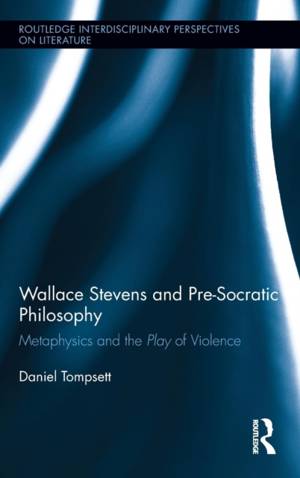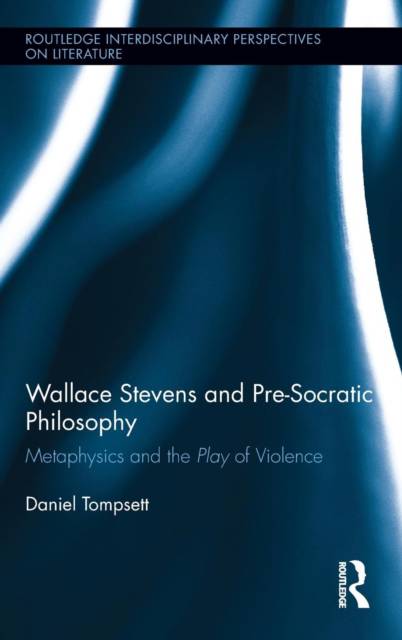
- Afhalen na 1 uur in een winkel met voorraad
- Gratis thuislevering in België vanaf € 30
- Ruim aanbod met 7 miljoen producten
- Afhalen na 1 uur in een winkel met voorraad
- Gratis thuislevering in België vanaf € 30
- Ruim aanbod met 7 miljoen producten
Omschrijving
This book studies Wallace Stevens and pre-Socratic philosophy, showing how concepts that animate Stevens' poetry parallel concepts and techniques found in the poetic works of Parmenides, Empedocles, and Xenophanes, and in the fragments of Heraclitus. Tompsett traces the transition of pre-Socratic ideas into poetry and philosophy of the post-Kantian period, assessing the impact that the mythologies associated with pre-Socratism have had on structures of metaphysical thought that are still found in poetry and philosophy today. This transition is treated as becoming increasingly important as poetic and philosophic forms have progressively taken on the existential burden of our post-theological age. Tompsett argues that Stevens' poetry attempts to 'play' its audience into an ontological ground in an effort to show that his 'reduction of metaphysics' is not dry philosophical imposition, but is enacted by our encounter with the poems themselves. Through an analysis of the language and form of Stevens' poems, Tompsett uncovers the mythology his poetry shares with certain pre-Socratics and with Greek tragedy. This shows how such mythic rhythms are apparent within the work of Friedrich Nietzsche, Martin Heidegger and Hans-Georg Gadamer, and how these rhythms release a poetic understanding of the violence of a 'reduction of metaphysics.'
Specificaties
Betrokkenen
- Auteur(s):
- Uitgeverij:
Inhoud
- Aantal bladzijden:
- 262
- Taal:
- Engels
- Reeks:
- Reeksnummer:
- nr. 9
Eigenschappen
- Productcode (EAN):
- 9780415507585
- Verschijningsdatum:
- 19/06/2012
- Uitvoering:
- Hardcover
- Formaat:
- Genaaid
- Afmetingen:
- 155 mm x 231 mm
- Gewicht:
- 498 g

Alleen bij Standaard Boekhandel
Beoordelingen
We publiceren alleen reviews die voldoen aan de voorwaarden voor reviews. Bekijk onze voorwaarden voor reviews.











